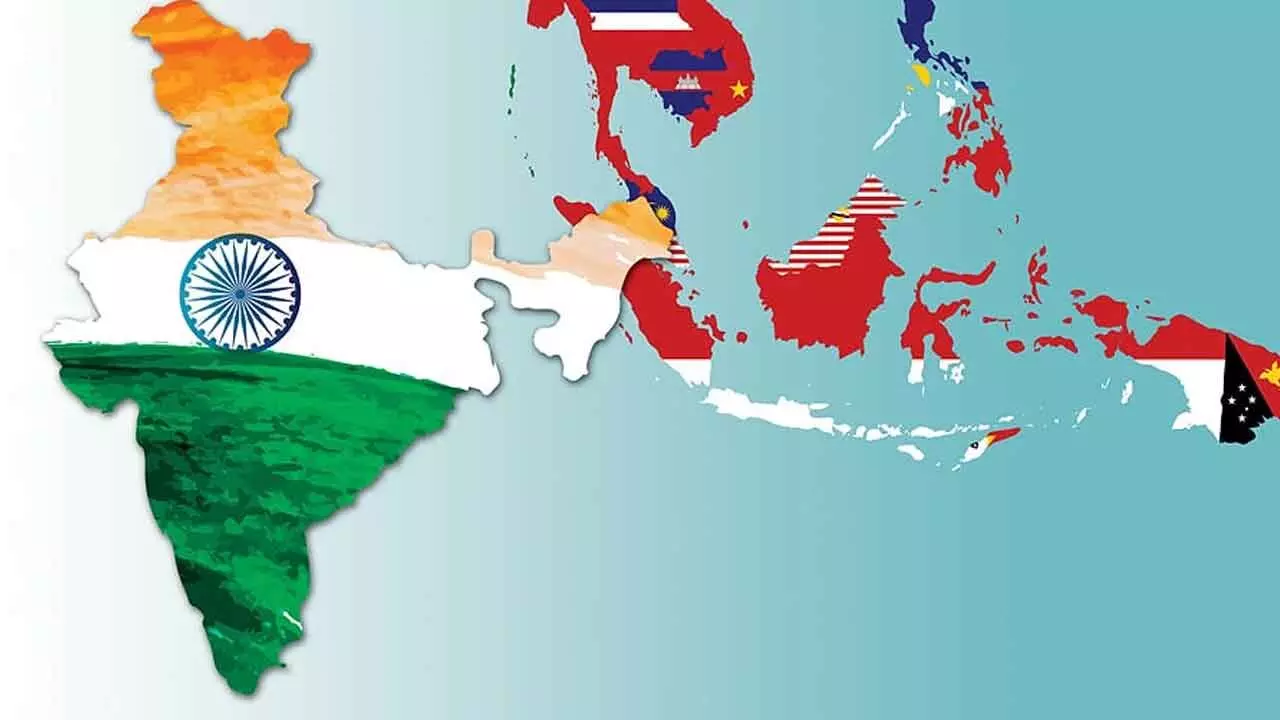India’S Act East Policy Gets A Major Boost

India and Singapore on Thursday elevated their ties to a “comprehensive strategic partnership” and inked four MoUs, including one on cooperation in the semiconductor industry, as the prosperous city-state’s companies pledged to invest about $60 billion in the next few years. This is a significant achievement of Prime Minister Narendra Modi’s South-East Asia visit to Brunei and Singapore, bolstering India’s Act East policy. Before we dwell on the PM’s tour, let’s pause for a thought on strategic alliances and partnerships. Strategic alliances denote an arrangement by which two or more states come together to seek protection as well as defend one another on issues of mutual concern. It can be formal or informal.
In the case of strategic partnerships, apart from sharing security concerns, the members broaden their friendship by committing to cooperation in key sectors such as trade, economy, technology, research and so on. Such an arrangement deepens the bonds among them. It may be noted here with India has so far inked over two dozen strategic partnerships with various countries, including Russia, US, the UK, European Union, Japan. A strategic partnership seeks to consolidate the existing historical, traditional and cultural ties, extending cooperation in various fields, including defence, and taking a common view on regional or global issues of concern to both. Such a pact highlights mutual confidence and taking on a special responsibility to expand bilateral or multilateral cooperation as the case may be.
Singapore is a small state, yet a heavyweight in regional politics, never meek towards any global power, fiercely maintaining its strategic autonomy. It seeks to pursue its national interests, without depending heavily on any foreign state. This makes it India’s natural ally. That the city-state, a thriving economy in South East Asia, agreed to help India grow its semiconductor sector should raise hopes in the fledgeling Indian industry. Singapore is a leading nation in the semiconductor and electronics sector which is critical to add further momentum to India’s economy growth in the new age. India also hopes to emulate the all-round development in Singapore, with Modi even expressing that India wanted to create many ‘Singapores’ within the country. India can benefit a lot from collaboration in areas such as skilling, digitalisation, mobility, advanced manufacturing, semiconductors and AI, healthcare, sustainability and cybersecurity. Over the past 10 years, bilateral trade has more than doubled and mutual investments crossed $150 billion.
The strategic aspect of the relations came to the fore when the two leaders committed to work together to promote peace and stability across the Indo-Pacific region, especially for freedom of navigation in and overflight above the South China Sea whole of which China claims as its own. Brunei is another South East Asian country which agreed with India on peace and security issues in the region, calling for an end to expansionism by anyone (read China). This stance of these two countries bolsters India’s Act East policy. Brunei, an oil rich nation, is also keen on defence, space collaboration with India. The other countries in the region, the Philippines, Malaysia, Vietnam, Brunei, and Taiwan, are also on the same page.
By addressing ASEAN members’ key concerns and offering defence cooperation, India is rightly countering China’s influence, while expanding bonds in major sectors with all the South East Asian nations. In 2022, India’s trade with ASEAN countries was worth over $110 billion. While the Look East Policy of his predecessors focused on mere economic cooperation with ASEAN nations, the Act East Policy of Modi government includes the neighborhood in Asia-Pacific and also involves security cooperation.

